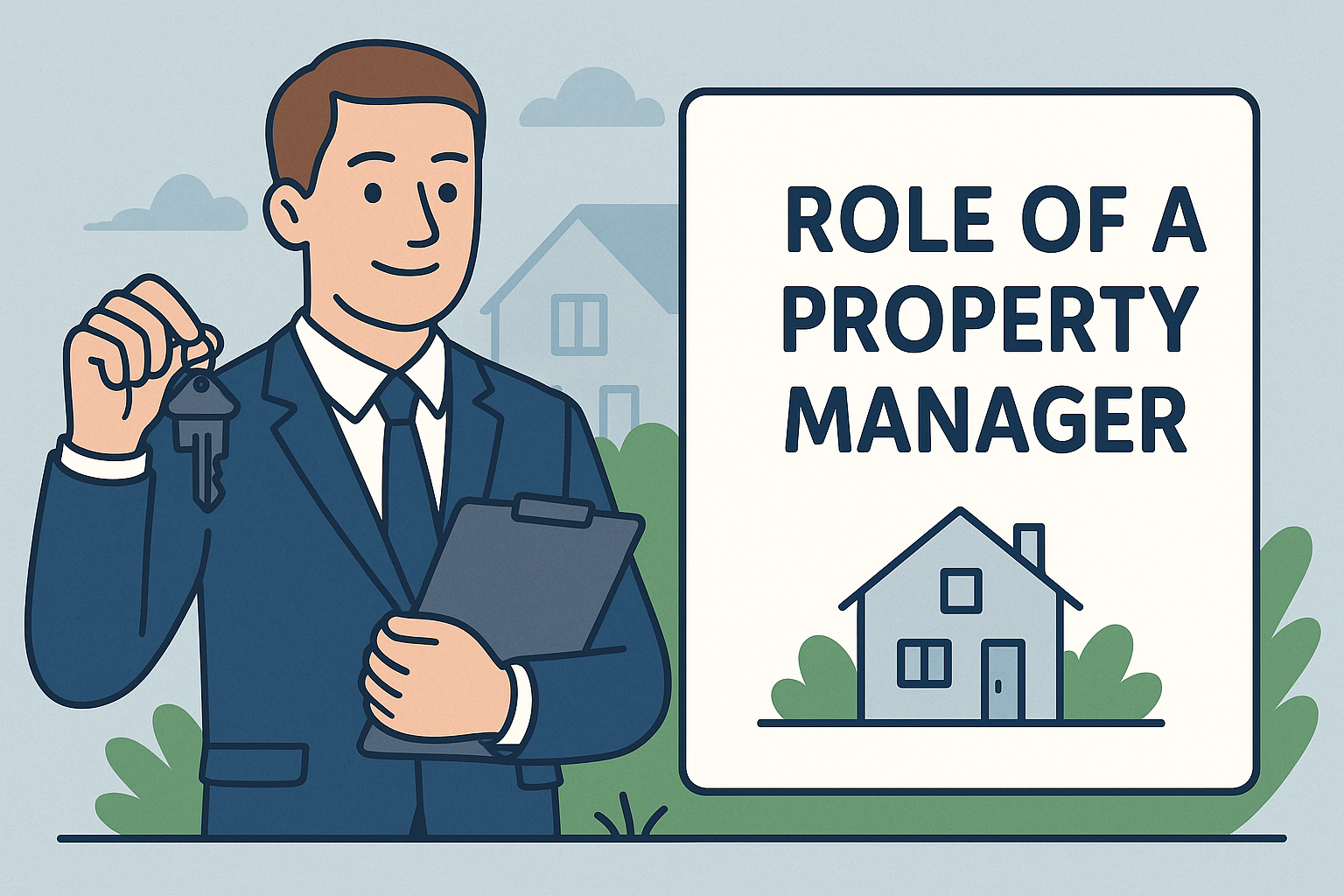Effective property management of a rental property in Lake County, IL, involves protecting property value, maximizing rental income, and keeping good residents happy. One of the most effective ways to achieve this is by focusing on resident retention strategies that reduce turnover and encourage lease renewals.
Professional property management services like those of Cruise Property Management can make this process smoother by combining proactive property maintenance, excellent resident communication, and strategic incentives.
Read on to see how this approach not only improves resident satisfaction but also enhances a property’s reputation and long-term profitability.
Key Takeaways
- Start lease renewal conversations early (60-90 days before expiration) to ensure a smooth process.
- Use clear communication and transparent pricing to build tenant trust and reduce turnover.
- Offer strategic incentives like rent discounts, property upgrades, and community perks to boost renewals.
- Implement flexible terms and prompt maintenance to enhance tenant retention and satisfaction.
The Lease Renewal Process
Lease renewal starts well before the actual expiration date. Property managers must be organized, strategic, and timely in their approach to achieve high resident retention rates. That's why clear communication and timely action set the tone for a smooth, stress-free renewal experience.
Step-by-Step Renewal Workflow
- Track lease expiration dates: Use property management software to monitor when each lease is due to expire. This avoids missed opportunities and ensures you reach out to residents on time.
- Start early: Engage current residents early—60-90 days before lease expiration—in renewal conversations to build trust and improve renewal likelihood. Extra lead time lets residents weigh options and gives landlords time to market the unit if needed.
- Communicate clearly: Provide residents with proper notice regarding lease renewal options and any changes to their lease agreements.
- Finalize efficiently: Digital lease renewal documents with e-signature capabilities help streamline the process and avoid paperwork delays.
Lease Renewal Benefits
Clearly communicating the benefits of lease renewals is essential for fostering long-term commitments.
Property owners and managers of rental property benefit from reducing tenant turnover through lease renewals. They ensure consistent rental income and maintain high occupancy rates that enhance property value. They also contribute to building a strong, positive reputation in the rental market.
For tenants, renewing a lease provides stability, predictable rent, and the comfort of a familiar living environment. Over time, these long-term relationships enable managers to better understand tenant preferences and tailor services to meet their needs.
Incentivizing Lease Renewals
In a competitive rental market, incentives can be the deciding factor for a tenant choosing to stay. The right incentive strategy can make renewal feel like a valuable opportunity rather than an obligation.

Monetary Incentives
Financial rewards can be powerful motivators for residents to stay. A few options you can offer include the following:
- One-Month Rent Discount: Provides immediate, tangible savings
- Rent Freeze: Keeps rent unchanged for the next term, appealing in rising markets
- Utility Inclusion: Covering select utilities, such as water or internet, adds value at minimal cost to the landlord
Property Upgrades
Enhancements to the living space boost resident satisfaction while increasing property value. Some examples include the following:
- Installing modern appliances
- Repainting interiors for a fresh look
- Making minor renovations that improve comfort and functionality
Community and Local Partnerships
Collaborations with nearby businesses can offer unique, low-cost perks that strengthen loyalty, such as the following:
- Complimentary gym trial memberships
- Discount vouchers for local cafés and restaurants
Effective Resident Retention Strategies
Retaining residents requires prioritizing retention strategies that focus on making tenants feel valued and comfortable. By creating a supportive and engaging environment, property managers can inspire residents to renew their leases and build lasting connections with the community.
Quality Resident Screening
A solid screening process sets the stage for long-term retention. Screening for financial responsibility helps identify quality residents who are more likely to pay rent on time and renew their leases.
Verifying income and employment, reviewing rental history, and running background and credit checks help ensure a good fit from the start. Clear policies on pets, smoking, deposits, and terms prevent future conflicts.
Flexible and Resident-Friendly Practices
Maintaining tenant satisfaction through excellent customer service and clear communication helps with tenant retention. Allowing minor customizations like approved wall painting or waiving late fees during genuine hardship shows understanding and builds trust.
Remember: Small, thoughtful gestures can make tenants feel valued.
Customized Lease Terms
Offering flexible lease terms and short-term lease extensions accommodates residents’ changing needs. For example, month-to-month agreements suit uncertain timelines and discounted multi-year leases encourage stability—all showing to residents that their needs matter.
Prompt Maintenance
Creating a positive living environment with property improvements encourages residents to renew their leases. Respond quickly to requests and keep residents informed throughout the process to maintain their satisfaction.
Use property management software to track and resolve requests without delays. Also, partnering with quality maintenance services ensures timely repairs that contribute to residents' well-being.
Technology and Performance Tracking
Technology simplifies lease renewals and supports stronger resident retention by enabling timely outreach through automated alerts. Utilize an online portal to make rent payments, maintenance requests, and communication easier, improving resident satisfaction.
By tracking resident retention rates, lease renewal rates, and other key metrics, property managers can refine their strategies to maintain high retention. Quickly responding to inquiries via digital tools also fosters strong relationships and encourages lease renewals.
Streamlined Lease Pricing Adjustments
Fair, transparent pricing plays a key role in retention. Use market research and historical data to keep rates competitive and informed. When adjustments are needed, communicate openly about the reasons. Transparent communication about rent adjustments and terms helps maintain resident trust.
For example, clear security deposit policies and lease agreements reduce misunderstandings and build positive relationships.
Market Awareness
Staying competitive means keeping an eye on local offerings. Regularly reviewing property news and market trends ensures rent prices remain competitive and fair.
Also, collecting resident feedback regularly allows property managers to address concerns and enhance the resident experience.
Referral Programs
Referral programs attract potential tenants and reward existing tenants for their loyalty, strengthening both occupancy rates and the sense of community.
The Role of a Property Manager
Property managers ensure timely rent payments while fostering positive landlord-tenant relationships through exceptional customer service. They maintain property standards, proactively address concerns, and build rapport with tenants through attentive, reliable service.

By leveraging software tools to streamline administrative tasks, property managers can focus on strengthening tenant relationships. Promptly handling tenant inquiries and maintenance requests supports tenant loyalty and satisfaction.
Working closely with property owners, property managers take a proactive approach to retain tenants and maximize rental income. Treating residents as valued customers builds trust, loyalty, and long-term occupancy.
Bringing Proven Lease Renewal Strategies to Life
In Lake County, IL, the key to successful property management lies in a balanced approach — blending proactive communication, thoughtful incentives, flexible lease options, and exceptional service. By implementing these proven retention strategies, property managers and property owners can sustain a profitable rental business with consistent rental income.
Ready to learn how a proactive property management approach can improve retention and encourage lease renewals? Contact Cruise Property Management today for a free consultation!
FAQs
1. When should property managers start the lease renewal process?
Renewal conversations should begin 60-90 days before the lease expiration to give residents enough time to consider their options and landlords time to plan accordingly.
2. What incentives can encourage residents to renew their leases?
Incentives include one-month rent discounts, rent freezes, utility inclusion, upgrades like new appliances or repainting, and partnerships offering perks such as gym trials or local restaurant discounts.
3. How does effective communication impact lease renewals?
Clear, timely communication about rent terms, changes, and benefits sets a positive tone, reduces stress, and increases the chances residents will renew.
4. How do flexible rent terms help encourage lease renewals?
Offering flexible options like month-to-month agreements, short-term extensions, or discounted multi-year leases accommodates residents’ changing needs and makes renewing more appealing.

.webp)
